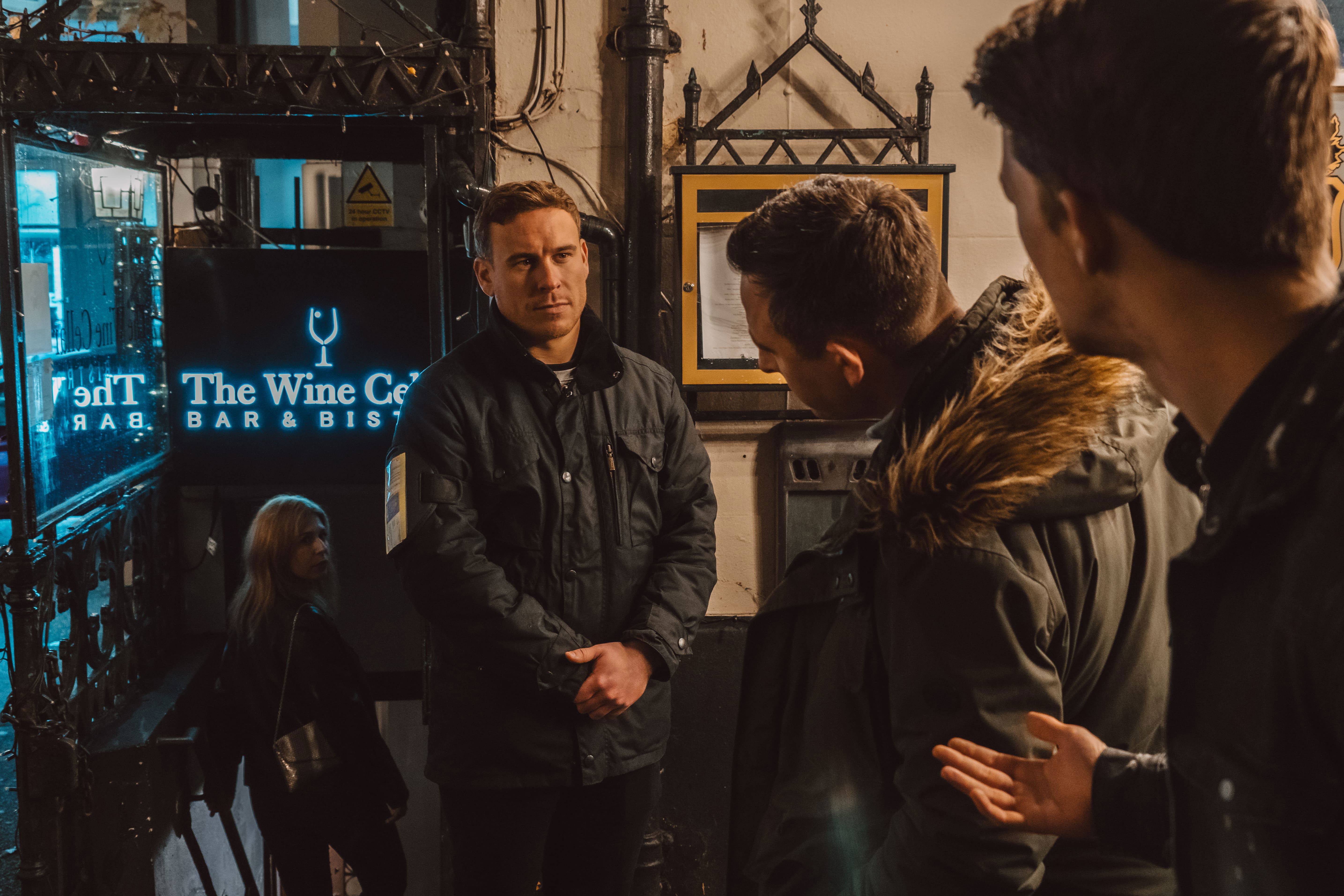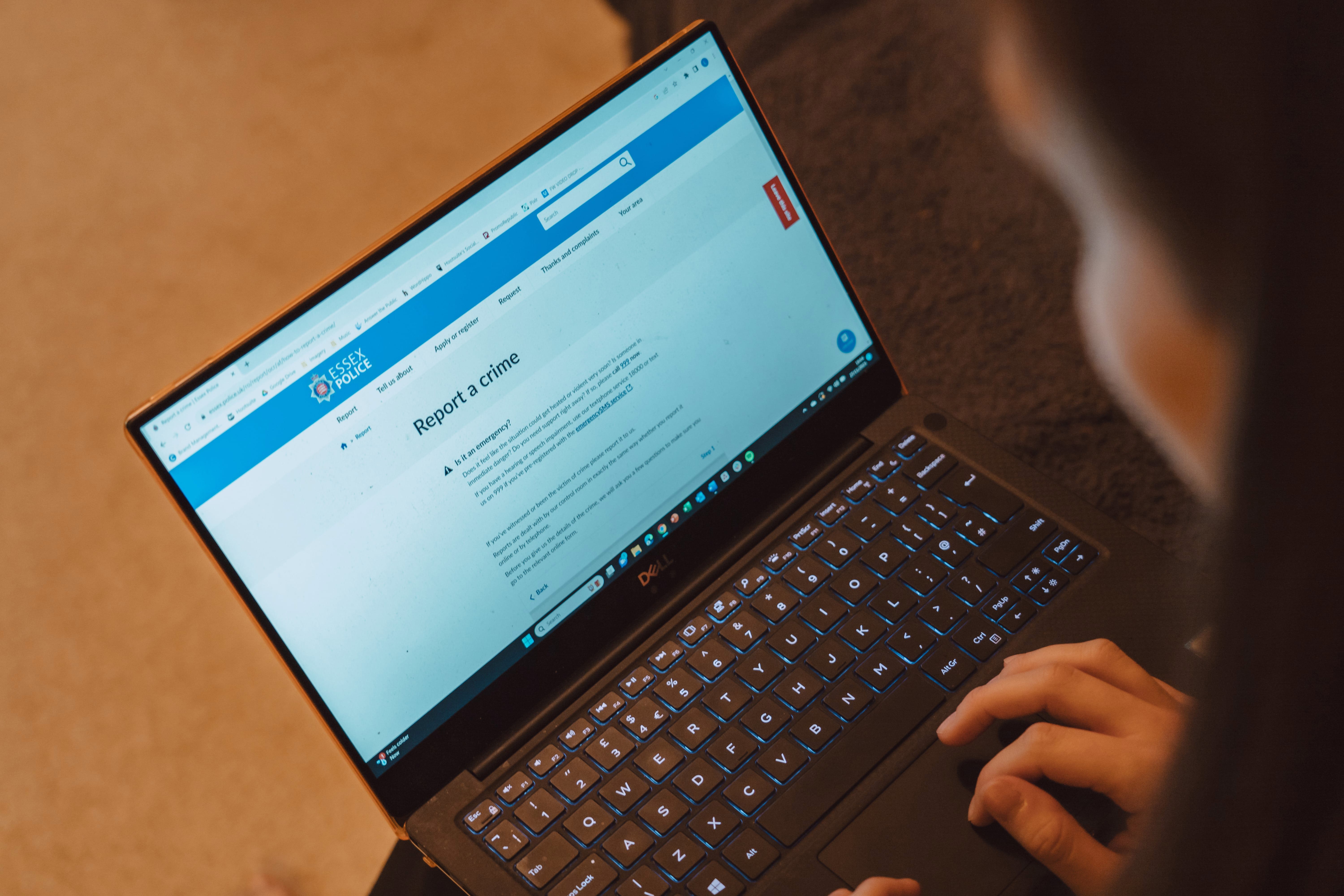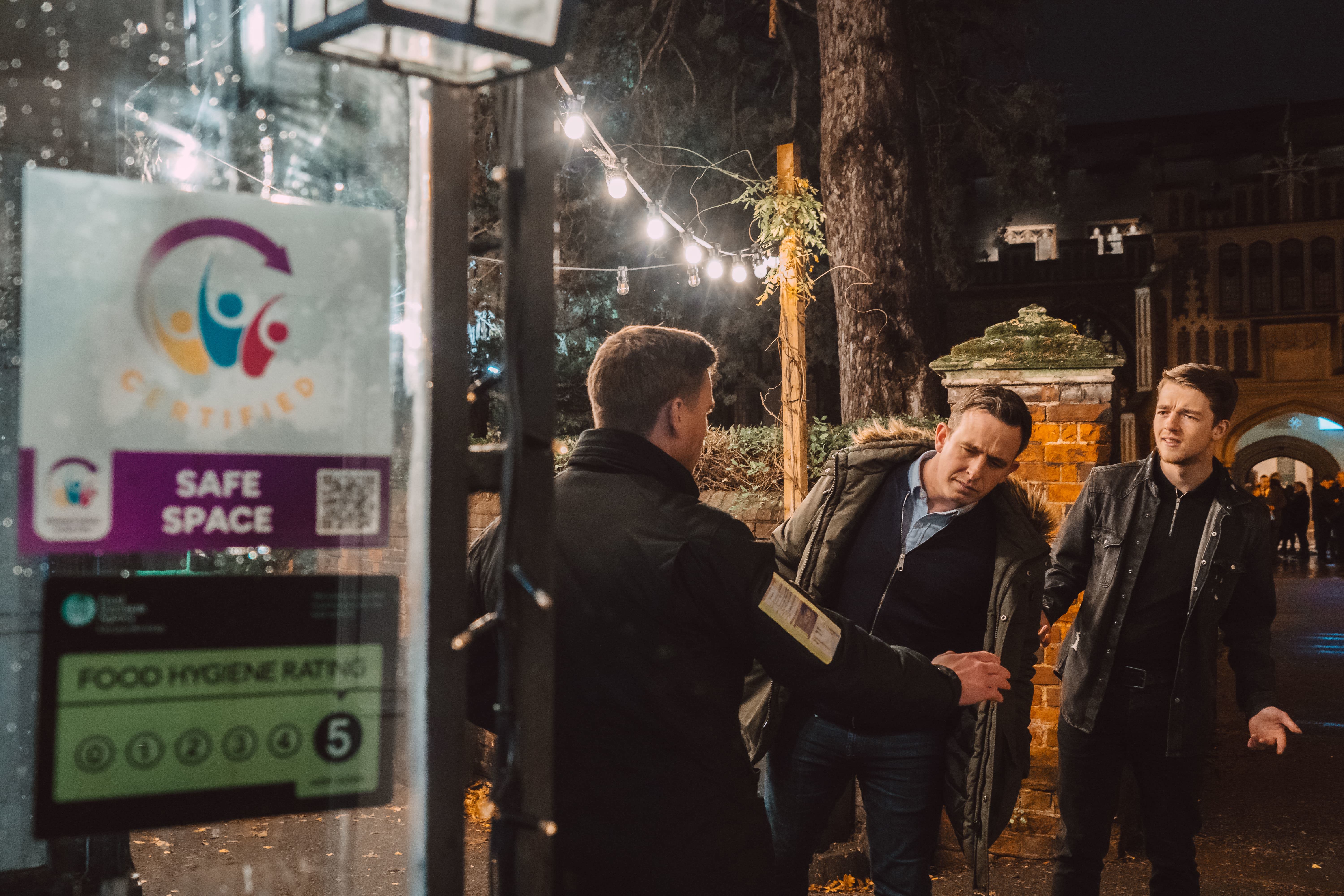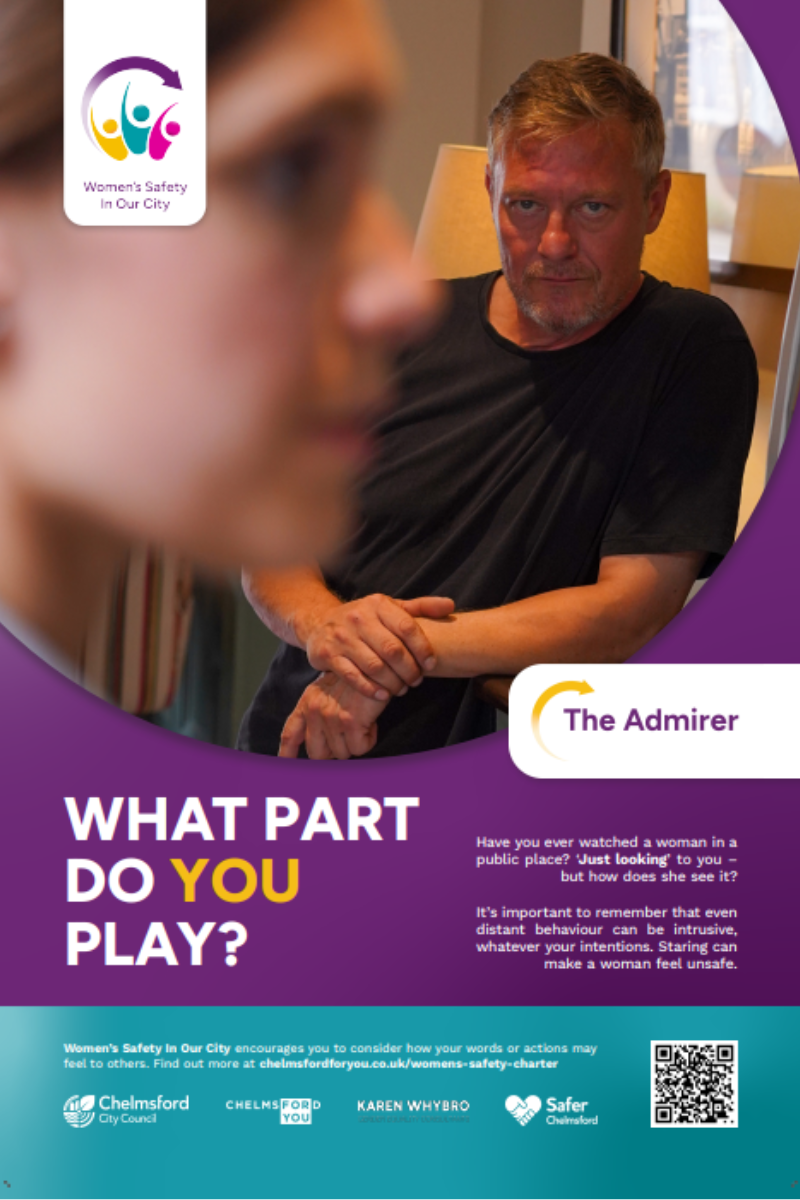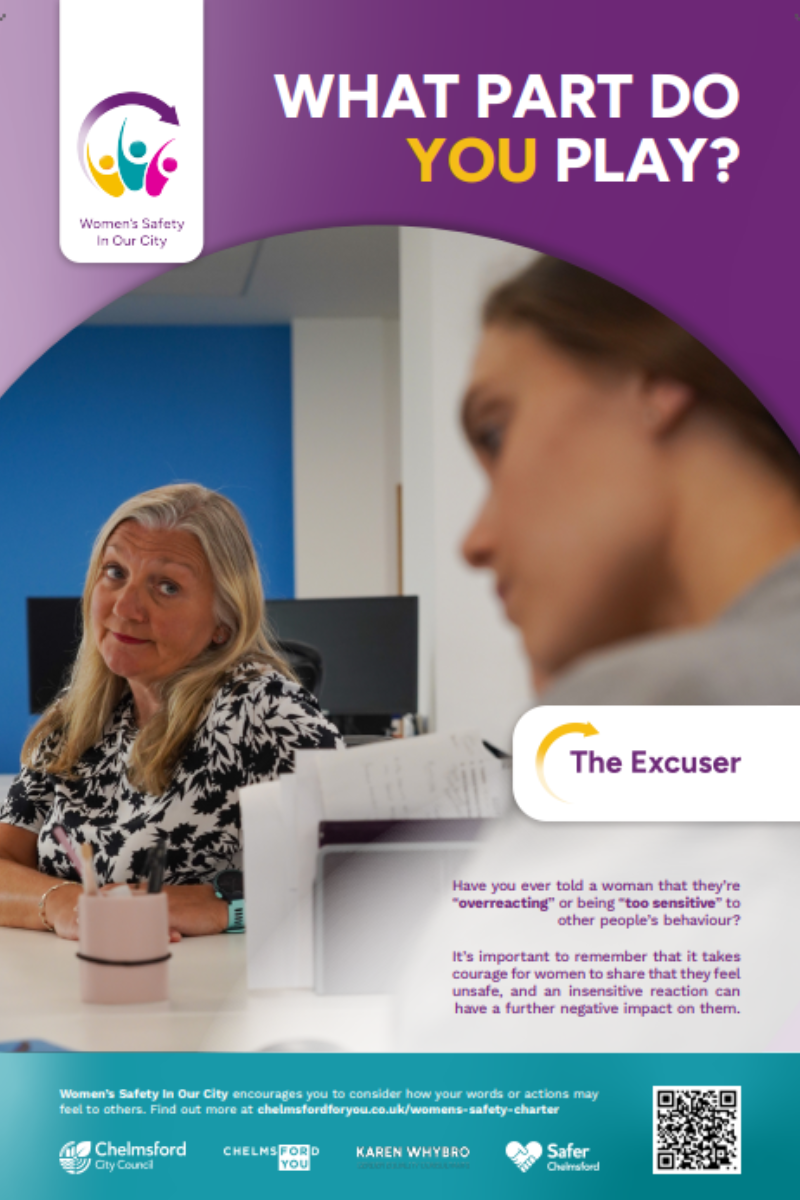Residents invited to help improve Women’s Safety in Our City by becoming Active Bystanders
Chelmsford City Council has launched a new instalment of the ‘Women’s Safety in Our City’ campaign, inviting residents to take an active role in creating a safer society for women and girls by becoming Active Bystanders.
What is an Active Bystander?
Active bystandership is the act of stepping in to help someone who is being harassed or is in an unsafe situation. Active bystandership is proven to reduce violence amongst communities, with research suggesting that Active Bystanders strengthen community bonds by holding themselves and others accountable.
Councillor Donna Eley says that seeing someone stand up for what’s right can inspire similar action in others:
““Most people know when they’re witnessing unwanted behaviour, but having the conviction to call out or disrupt those behaviours can really affect change. Research shows that witnessing active bystandership leads to more sympathy for victims of unwanted behaviour and helps strengthen our sense of shared values and community. Plus, of course, there is a huge benefit to women and girls who are supported by Active Bystanders.
Cllr Donna Eley, Cabinet Member for a Safer Chelmsford, Chelmsford City Council
“Disrupting an unsafe situation doesn’t need to involve confrontation, there are some really effective, subtle ways that you can help someone without causing a scene or putting yourself in a vulnerable position. We hope that by seeing these methods in action, our residents will feel empowered to stand up for what they feel is right and help to embed a strong Active Bystander culture in Chelmsford.”
The first Women’s Safety in Our City campaign invited people, of all genders, to ask themselves “what part do you play” in women’s safety in Chelmsford? Now, we’re asking “what part can you play?”
A recent YouGov survey found that the majority of adults in the UK would like to be more active in helping someone facing harassment or violence in public. The same survey revealed that only around 40% felt confident they knew how to intervene safely. This new campaign hopes to counter that, by sharing simple, non-confrontational ways in which you can be an Active Bystander.
How can I be an Active Bystander?
Essex Bystander Training is a free resource for those interested in active bystandership. It’s a simple, online course that takes around 45 minutes to complete and aims to empower residents to intervene in a safe and appropriate way when they witness situations that are uncomfortable, threatening, dehumanising, or distressing for women.
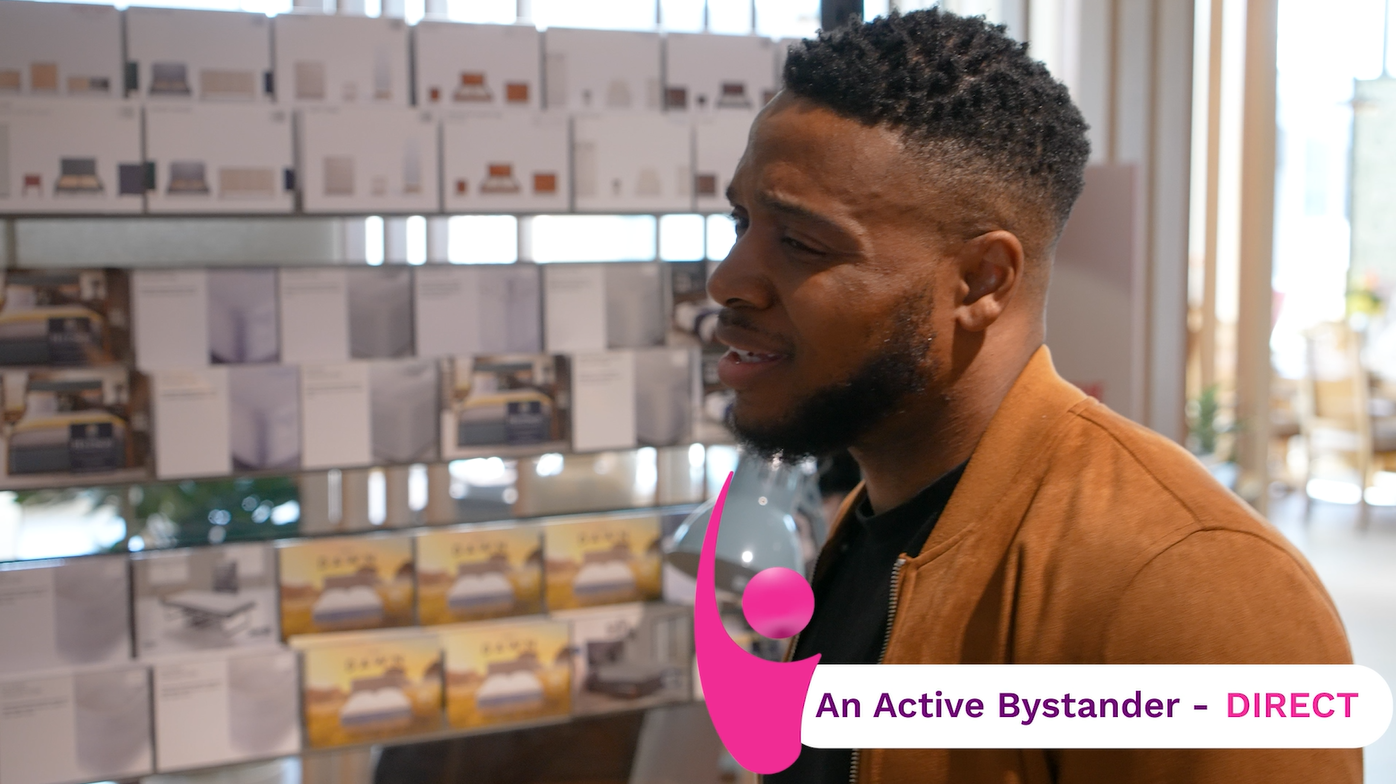
Essex Bystander Training is based on ‘the 4Ds’.
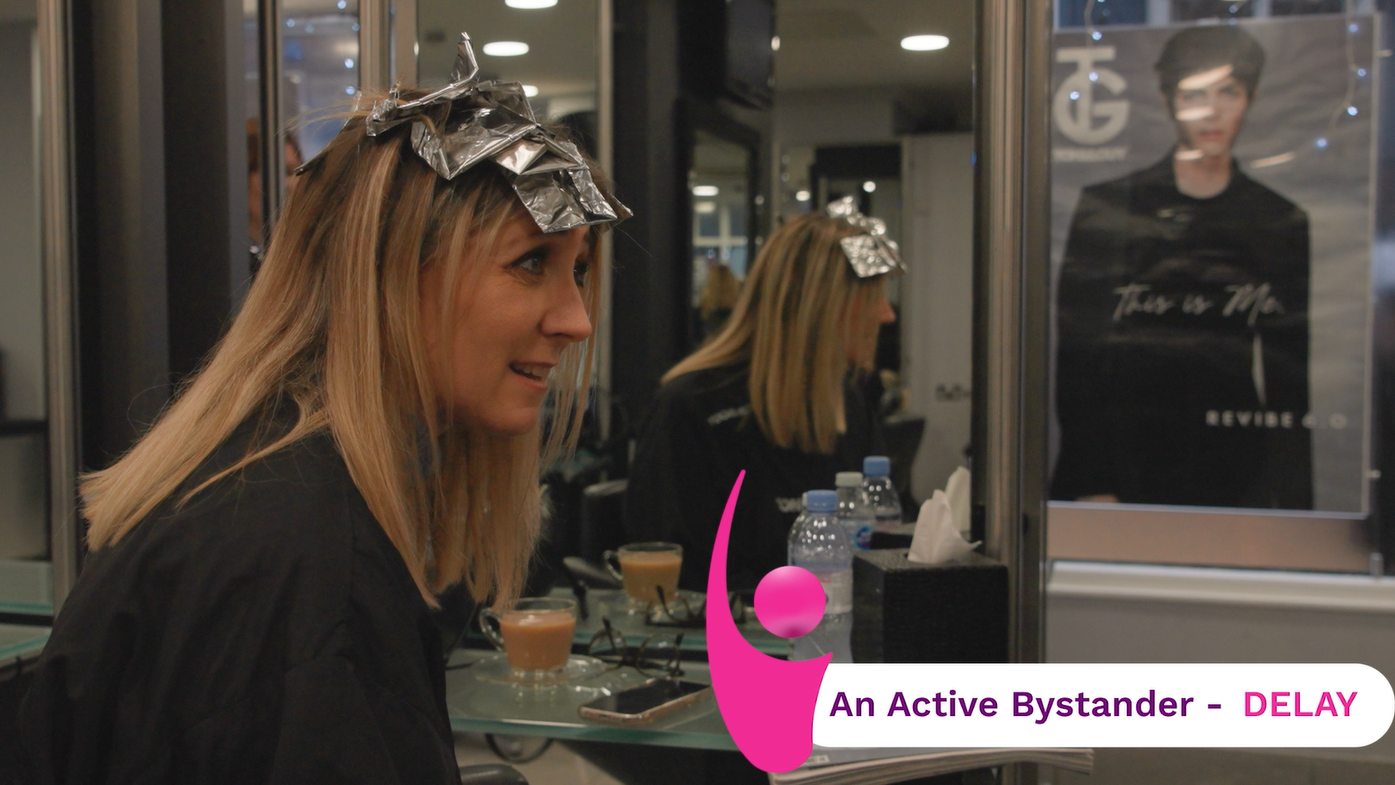
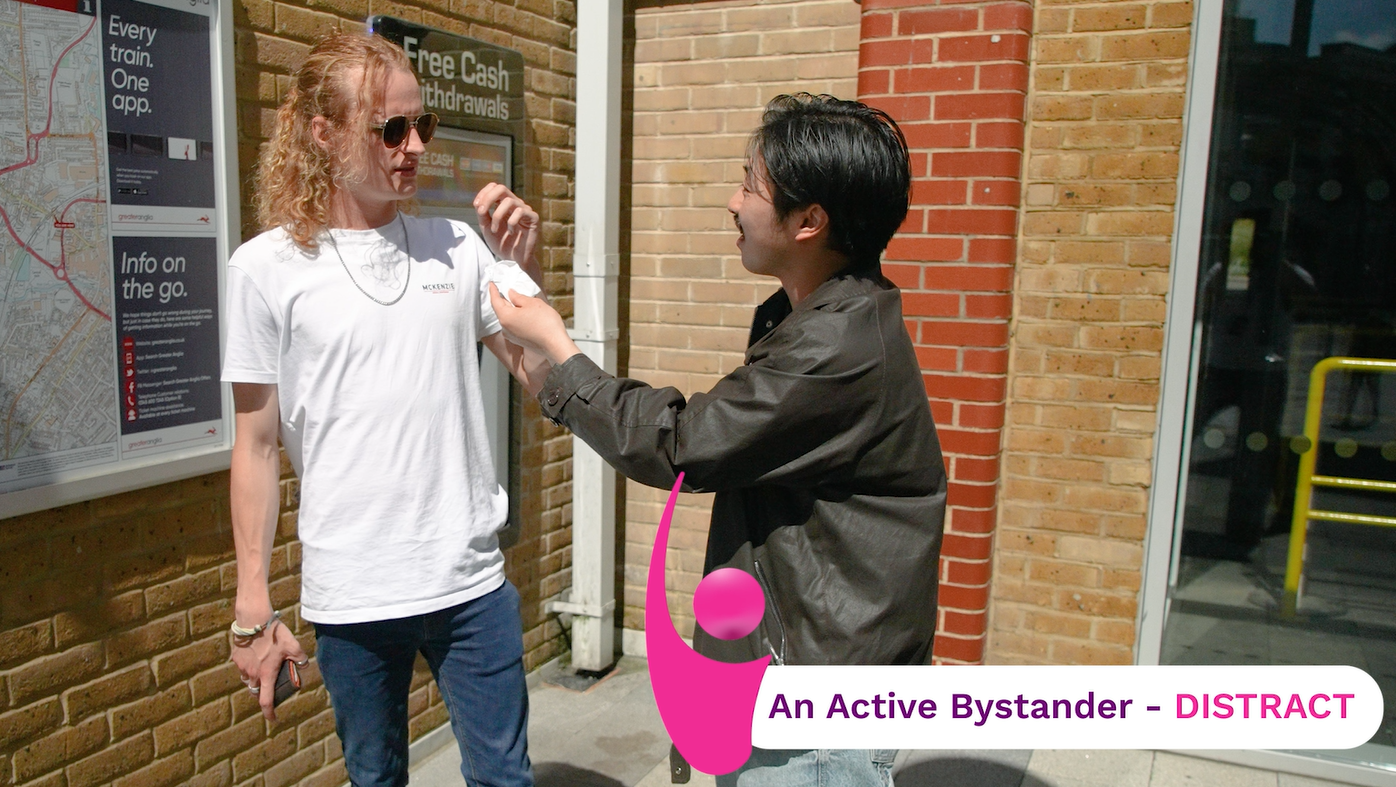
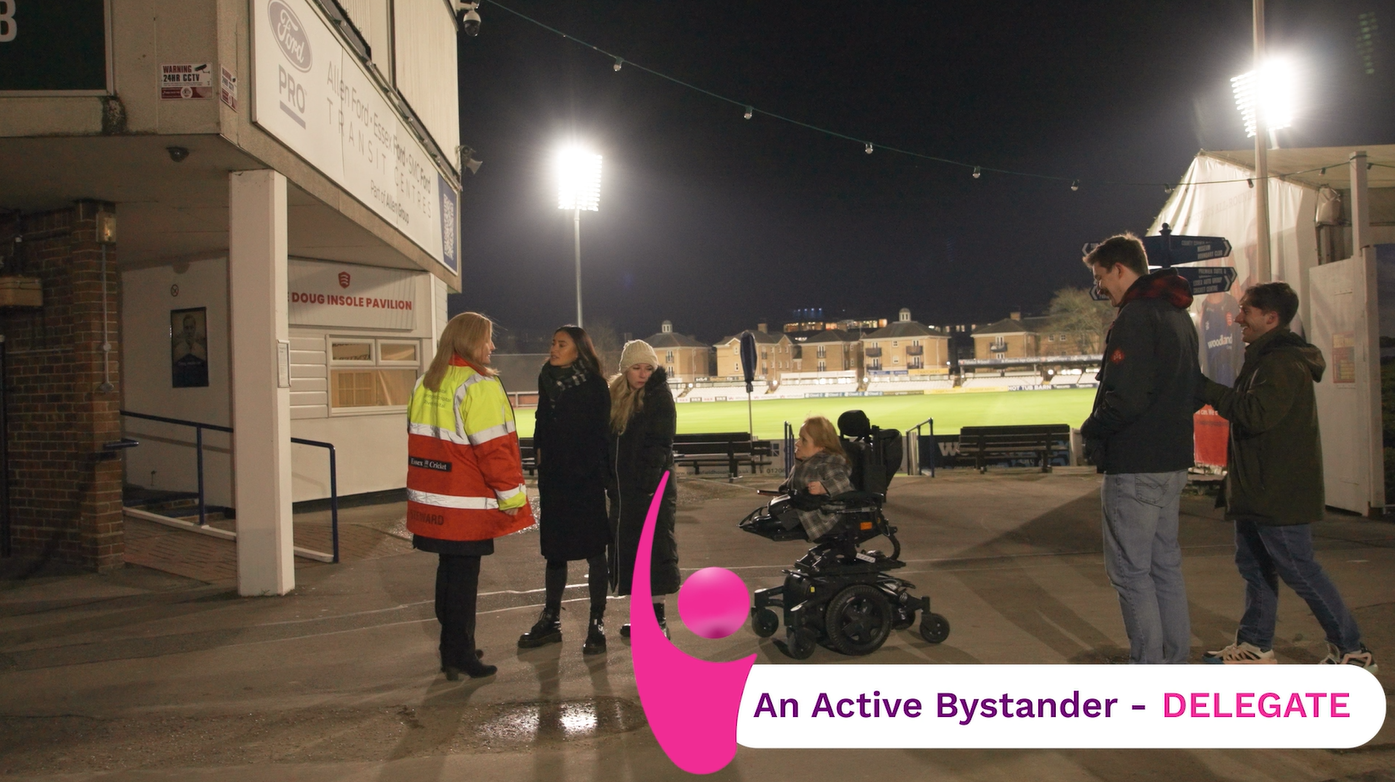
The training is based on ‘the 4Ds’: direct, delay, distract, delegate; each a method of active bystandership. Different incidents may require different approaches, and you may find that you’re more comfortable actioning one of the 4Ds than another.
- DIRECT: To directly intervene, addressing the person you’re concerned about or the person exhibiting the behaviour. When using the direct method, it’s important to be clear and firm. You can use "I" statements to explain why something is unacceptable ("I don't like it when you use language like that, it’s disrespectful”), ask the person you’re concerned about if there is a problem (“is this person following you?”) or name the behaviour (“she asked you to stop, you are harassing her.”). It’s important to assess the situation before taking this approach, to ensure that you and those around you are safe.
- DELAY: Ensuring a person is ok after an incident has taken place. If you don’t get the chance or don’t feel confident to intervene during an incident, you can still help! Just asking someone if they’re ok can make them feel safer and validate that what they experienced wasn’t acceptable behaviour. You can also offer practical support, by offering to walk them to a taxi or telling them where they can report the incident if they want to.
- DISTRACT: Creating a diversion to interrupt and derail the incident, without directly addressing it. You could ask the person you’re concerned about an innocuous question, like “do you have the time?” or even pretend to know them and start having a chat. By interacting with them, you’re removing them from the unsafe situation. Alternatively, you can create an unrelated distraction, by dropping some change or spilling a drink.
- DELEGATE: Asking a third party to step in; security staff, the police, or other members of the public. If you don’t feel safe or confident to step in to a situation alone, you can ask other bystanders to do it with you. Or you can call on someone with authority (a staff member, security, or a police officer) to help.
Kaylie Charlery, from the council’s Community Safety team, says the training is a great way to understand active bystandership and build confidence:
““Essex Bystander Training, commissioned by Essex County Council, is a perfect introduction to active bystandership. It shows how to challenge unwanted behaviours in a safe and effective manner, so that you can feel confident to step in, if and when you want to.
Kaylie Charlery, Senior Community Safety Officer, Chelmsford City Council
“Acts of support and understanding, however small, can make a big difference to someone’s experience and their overall feeling of safety. We hope that by sharing examples of active bystandership, Women’s Safety in Our City will inspire people to want to learn more and do more to support women and girls in their communities.”
Why should I become an Active Bystander?
Active bystandership is effective in two ways: It helps women and girls feel supported and safe, and it solidifies to the wider community what is and is not acceptable behaviour. Research shows that effective bystander cultures can reduce harm and improve experiences for victims of violence and abuse.
The first instalment of Women’s Safety in Our City was launched in November 2022, in tandem with Chelmsford’s groundbreaking Women’s Safety Charter, and urged residents to consider their own behaviour and how their actions might affect the women around them.
Since then, the conversation around women’s safety has expanded, with the National Police Chiefs Council (NPCC) declaring violence against women and girls (VAWG) a national emergency. The declaration was made in July 2024, citing a 37% increase in VAWG crimes, with 3,000 offences recorded each day.
Spencer Clarke, Chelmsford City Council’s Public Protection Manager, says that addressing a problem of this scale requires everyone to play their part:
““We need to see a shift in what is and isn’t accepted by the majority. We know that tolerance of low-level behaviours, such as catcalling and sexist jokes, create and reinforce harmful stereotypes and gender discrimination, which become foundational beliefs for individuals and therefore communities.
Spencer Clarke, Public Protection Manager, Chelmsford City Council
“Changing cultural behaviour is a huge task that will take everyone’s support, and active bystandership is a vital piece of the puzzle. The Community Safety team are continuing to work with our partners to do all we can to promote cultural change, working with communities across our district, talking to and educating people of all ages and all genders.
“Another important factor is communities’ confidence in reporting processes and trust in local authorities to support women and girls. In the Women’s Safety in Our City film, we showcase some of Chelmsford’s certified Safe Spaces and promote Streetsafe, which is an anonymous reporting tool. We hope that the film inspires people to take a stand and support women’s safety.”
Women’s Safety in Our City
At least 1 in 12 women are victims of VAWG each year, although the exact number is expected to be much higher. A survey by UN Women UK found that 97% of women aged 18-24 have experienced sexual harassment, and 96% of them didn't report it. It may be tempting to consider lower-level behaviours, such as those seen in the Women’s Safety in Our City films, as completely separate from the more extreme incidents of VAWG we see reported on the news. However, studies show that these crimes are often underpinned by problematic attitudes and beliefs.
By recognising these attitudes and beliefs when we witness them, and acknowledging that they are harmful, we can make a difference.
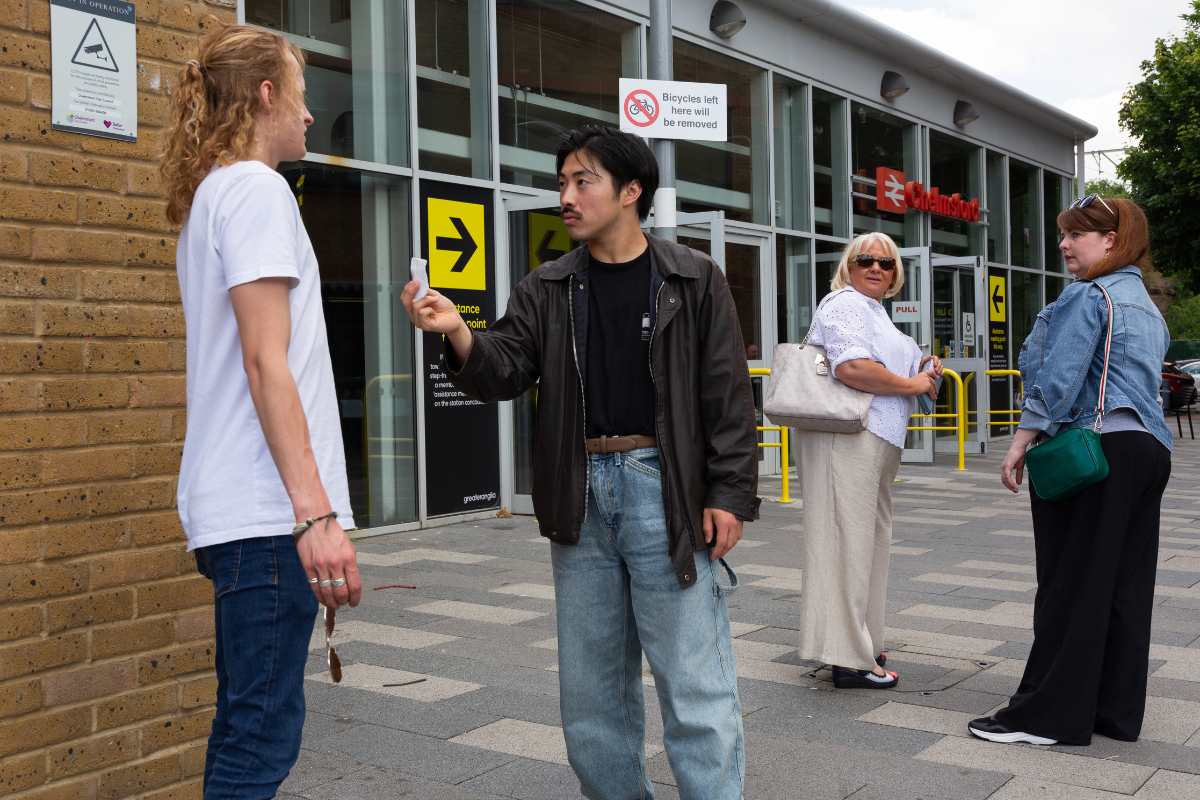
Women’s Safety in Our City was filmed in recognisable Chelmsford locations.
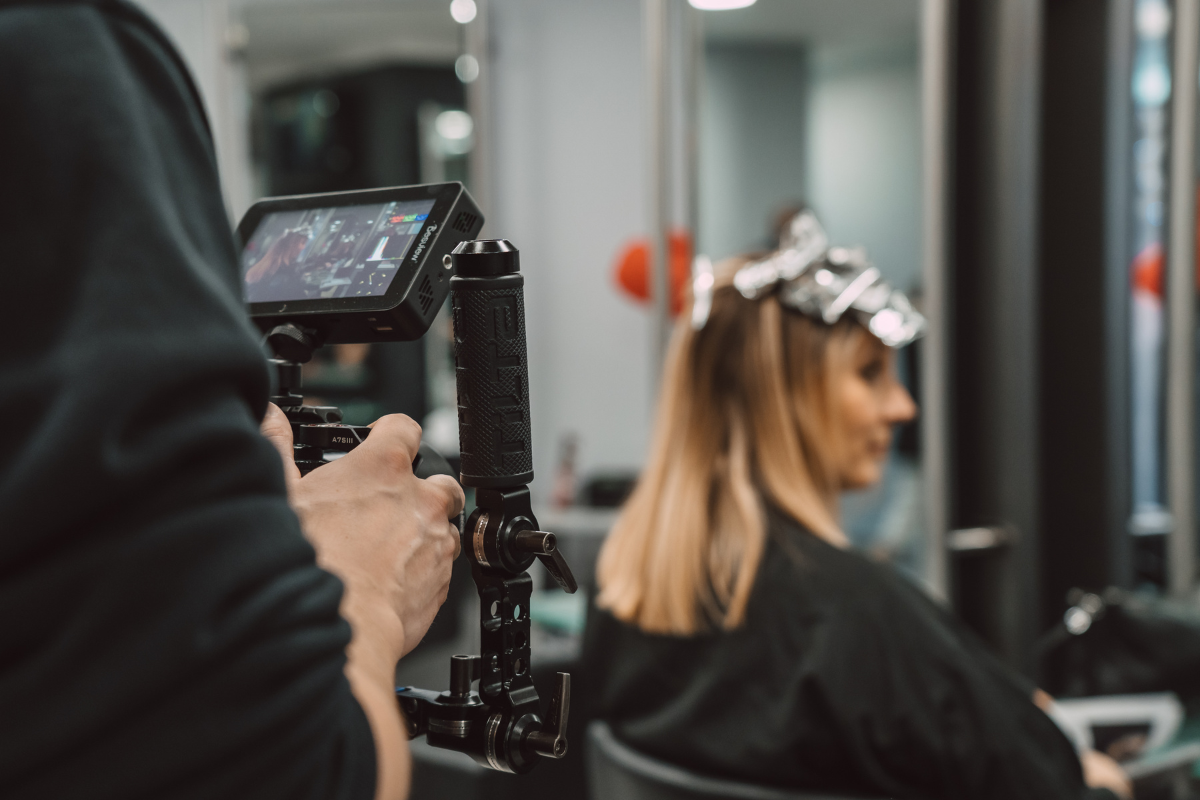
Businesses signed up to the Safety Charter, including Toni&Guy, are featured in the campaign.
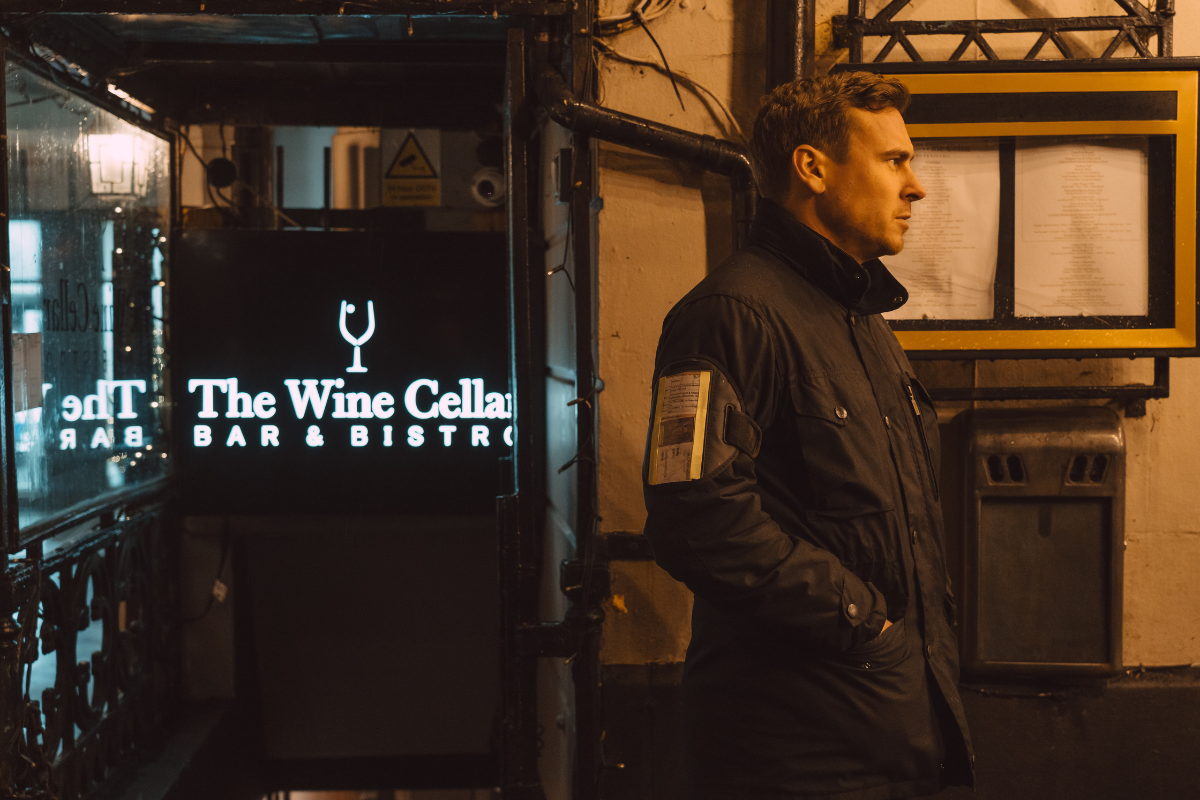
The Wine Cellar is one of Chelmsford's certified Safe Spaces.
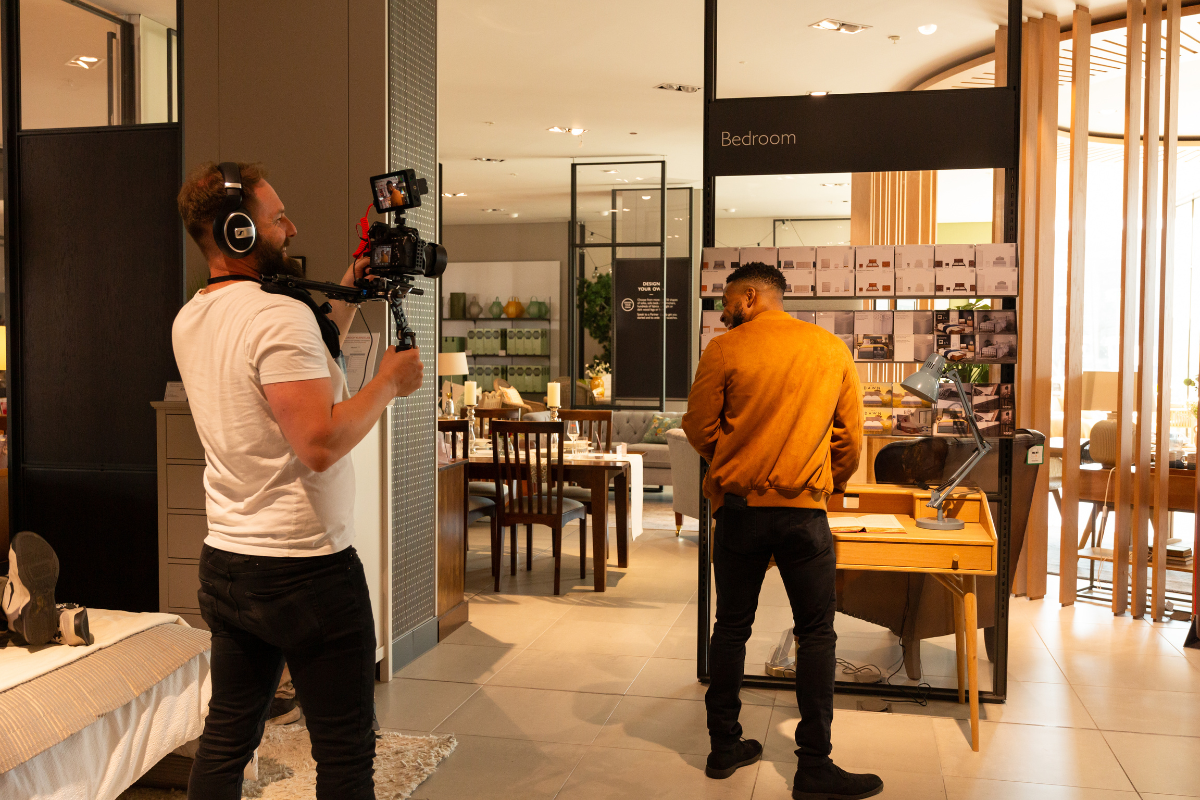
John Lewis staff have undertaken women's safety training as part of Chelmsford's Women's Safety Charter.
Women’s Safety in Our City, which was made possible by Safer Streets funding and the UK Shared Prosperity Fund, was filmed in recognisable Chelmsford locations, to remind viewers that women and girls in our own communities’ continue to feel unsafe and experience unwanted behaviour.
Each scene takes place in a venue that has signed up to the Women’s Safety Charter, pledging to be a ‘Safe Space’ and provide strong, consistent support to women and girls. The scenarios in the film were designed to reflect real-life experiences shared by women who live and work in Chelmsford.
Next time you witness a situation that is making a woman feel uncomfortable, threated, dehumanised, or distressed, remember the 4Ds: direct, delay, distract, delegate.
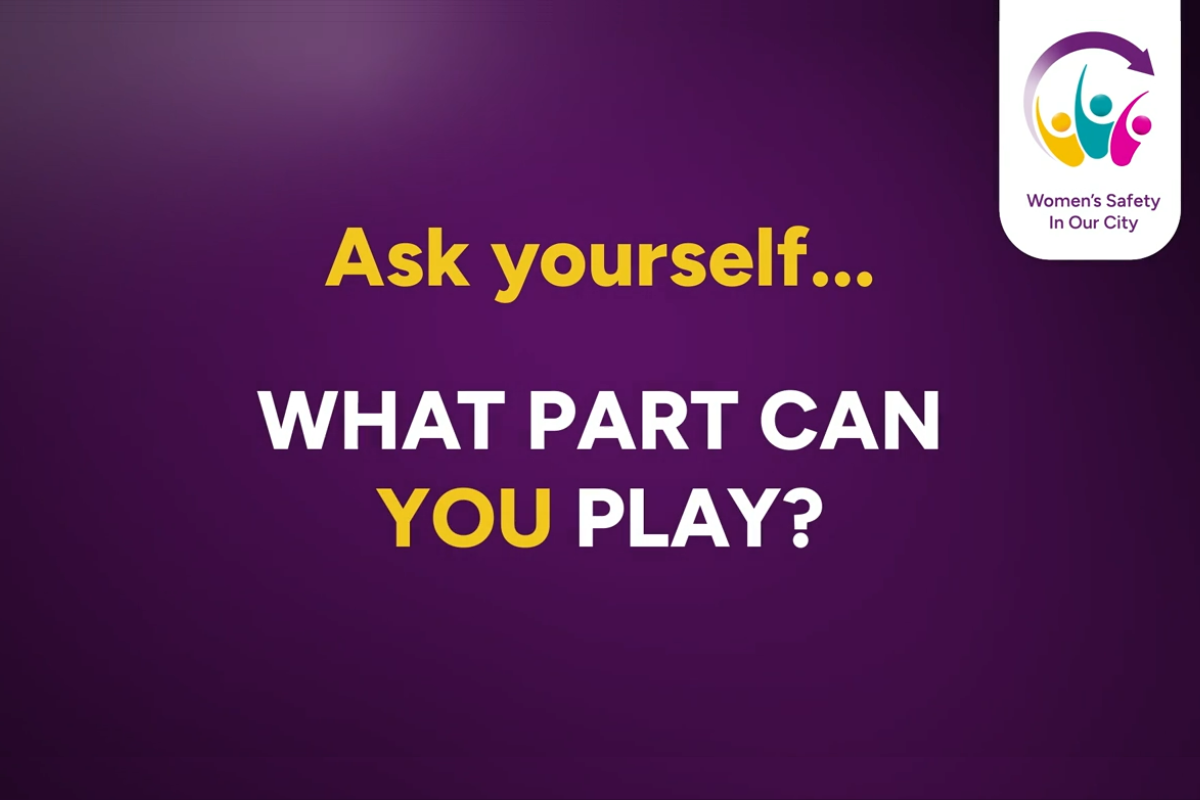
Resources and more information
Essex Bystander Training is free and available to everyone. You can take the training here: https://essexbystandertraining.co.uk/
Streetsafe is a non-emergency reporting tool that lets police know where you feel unsafe, so they can respond and support you. You can make an anonymous Streetsafe report here: https://www.essex.police.uk/notices/street-safe/street-safe/
Learn more about the Women’s Safety Charter and find a list of Chelmsford’s accredited Safe Spaces here: https://www.chelmsford.gov.uk/communities/community-safety/womens-safety-charter/
You can subscribe to the Safer Chelmsford newsletter, to keep up to date with news from Chelmsford City Council’s Public Health and Protection team, here: signup.es-mail.co.uk

